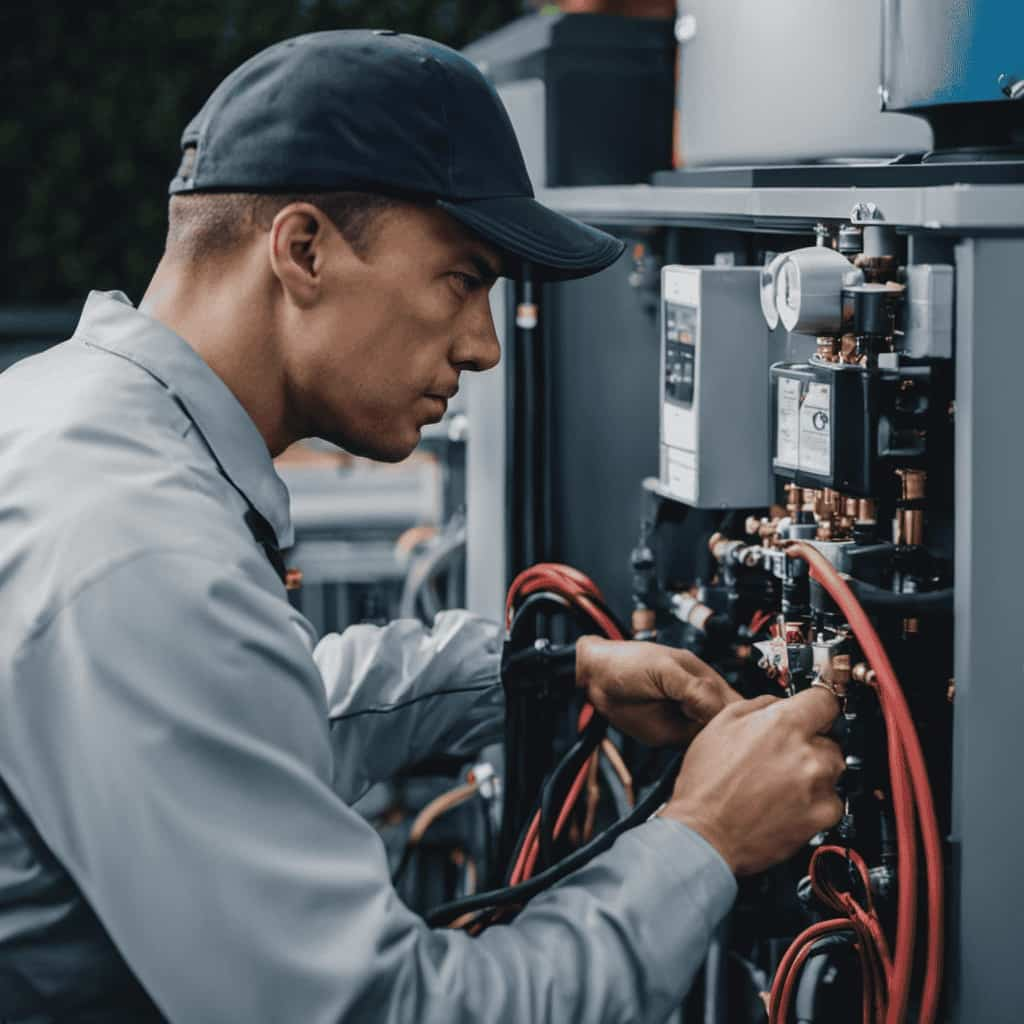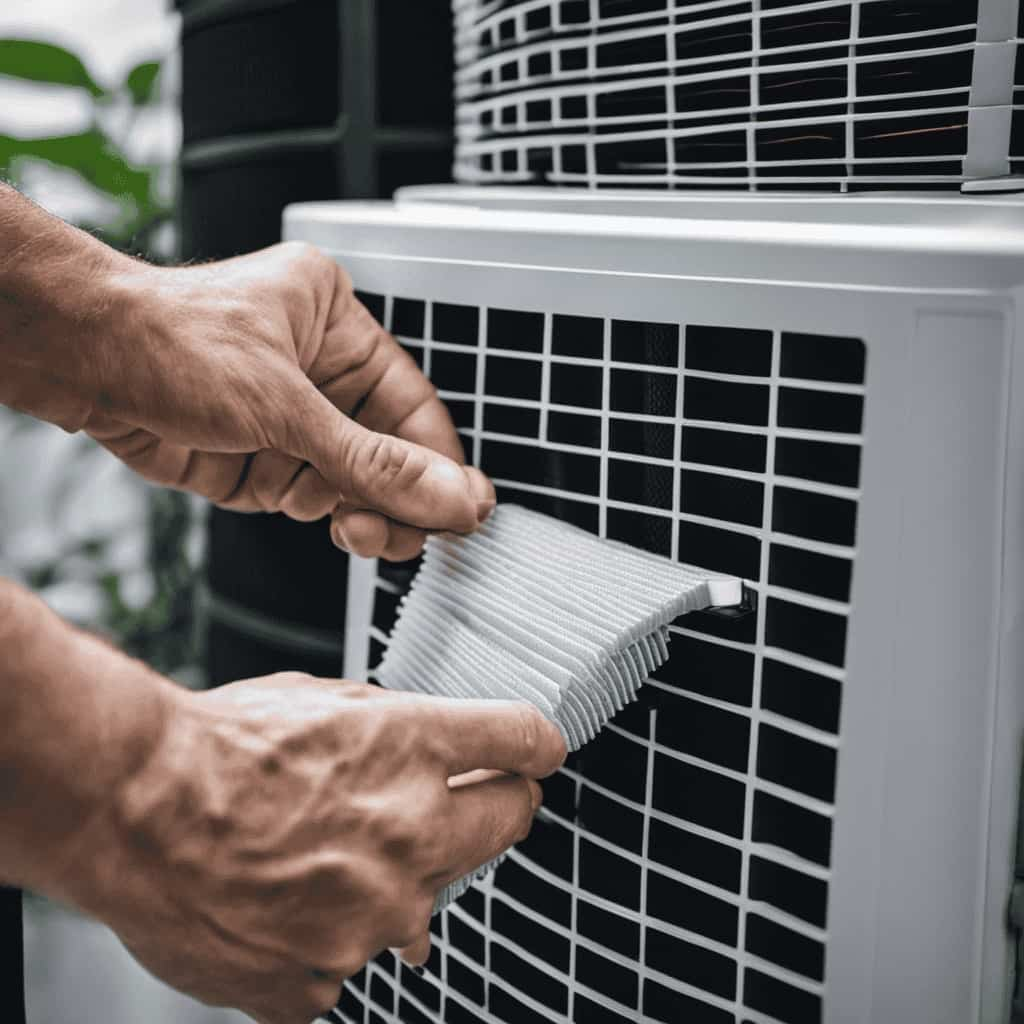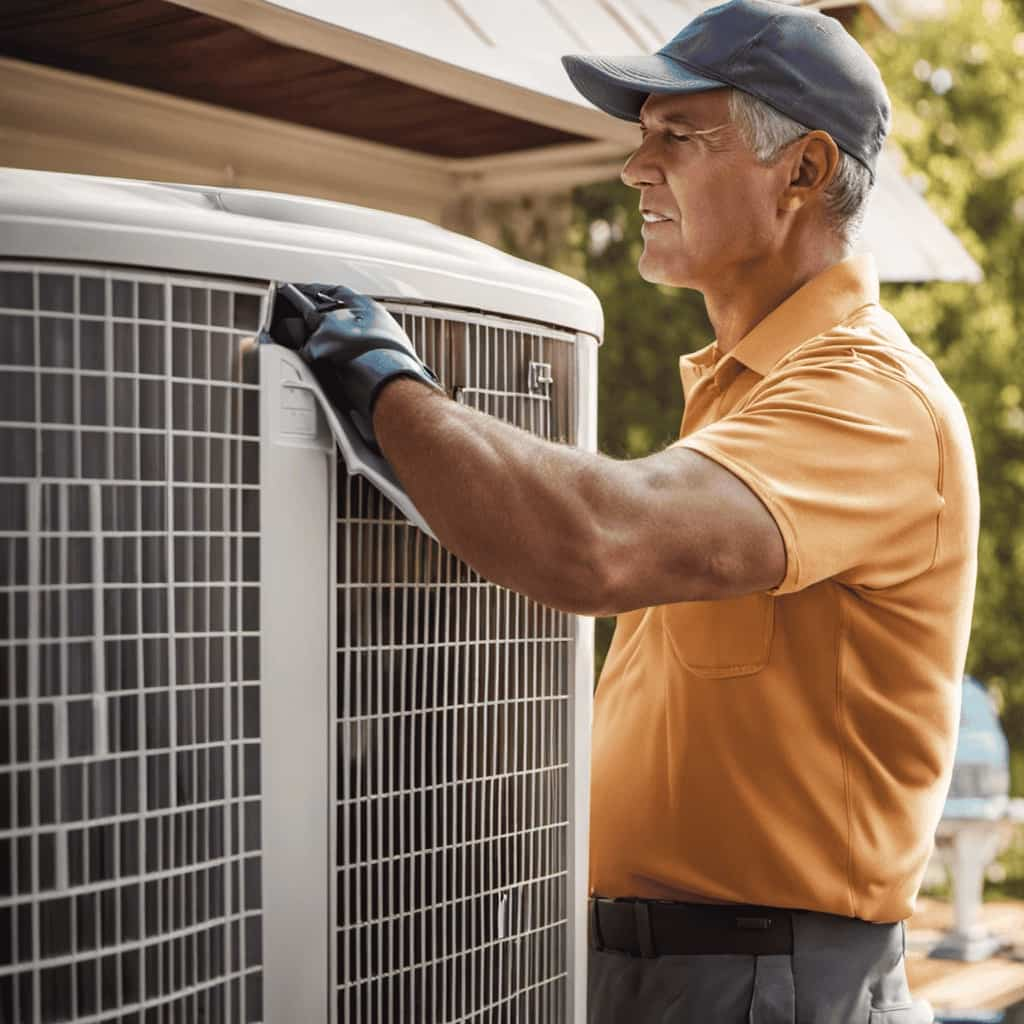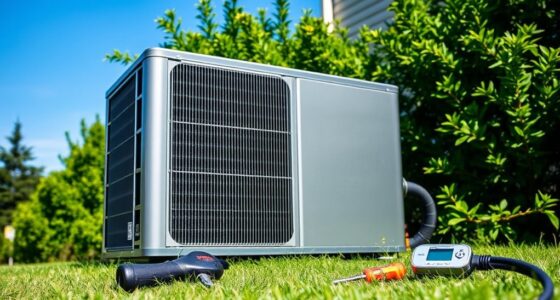
Are you fed up with expensive energy bills and ineffective heating? We’ve got the answer for you.
Efficient heat pumps are the key to initiating energy conservation and saving money. Imagine reducing your energy consumption while still enjoying a comfortable home all year round.
With our expert tips and insights, you can optimize the performance of your heat pump and make a positive impact on both your wallet and the environment.
Get ready to take control of your energy usage with efficient heat pumps.
Key Takeaways
- Energy conservation in heat pumps reduces greenhouse gas emissions and improves air quality.
- Understanding heat pump efficiency ratings (SEER and HSPF) can help identify more efficient models.
- Optimizing heat pump performance through regular maintenance and proper insulation can lead to energy savings.
- Investing in energy-saving heat pump upgrades can increase energy efficiency, lower utility bills, and contribute to a more sustainable home environment.
Importance of Energy Conservation in Heat Pumps
We believe that conserving energy in heat pumps is crucial for reducing carbon emissions and achieving sustainability goals.
Heat pumps are a highly efficient technology that can provide both heating and cooling, making them a versatile option for residential and commercial applications.
By using energy more efficiently, heat pumps can significantly reduce the amount of greenhouse gases released into the environment. This has a positive impact on air quality and helps mitigate climate change.
Additionally, energy conservation in heat pumps can lead to lower utility bills for consumers, making them a cost-effective choice in the long run.

Understanding the benefits of heat pump technology and the impact of energy conservation on the environment is essential for promoting sustainable practices.
Now, let’s delve into understanding heat pump efficiency ratings.
Understanding Heat Pump Efficiency Ratings
To fully comprehend the efficiency of heat pumps, it’s important to understand both their SEER and HSPF ratings.
Heat pump technology offers energy efficient heating solutions, but it’s crucial to choose a system with high efficiency ratings in order to maximize energy savings.

The SEER (Seasonal Energy Efficiency Ratio) rating measures the cooling efficiency of the heat pump, while the HSPF (Heating Seasonal Performance Factor) rating measures its heating efficiency.
A higher SEER rating indicates greater cooling efficiency, while a higher HSPF rating indicates greater heating efficiency.
It’s recommended to choose a heat pump with a SEER rating of at least 14 and an HSPF rating of at least 8.
Optimizing Heat Pump Performance for Energy Savings
To achieve energy savings, we can optimize the performance of our heat pump. By maximizing performance and reducing energy consumption, we can effectively lower our energy bills and reduce our carbon footprint.

Here are three ways to optimize heat pump performance for energy savings:
-
Regular maintenance: Schedule regular inspections and tune-ups to ensure that your heat pump is running efficiently. This includes cleaning or replacing filters, checking refrigerant levels, and inspecting electrical connections.
-
Proper insulation: Ensure that your home is properly insulated to minimize heat loss or gain. This will help your heat pump work more efficiently by maintaining a consistent indoor temperature.
-
Smart thermostat: Install a programmable or smart thermostat to control and schedule your heat pump’s operation. This allows you to adjust the temperature settings based on your occupancy patterns, saving energy when you’re away or asleep.

Tips for Efficient Heat Pump Operation
Our article provides five practical tips for operating heat pumps efficiently and reducing energy consumption.
By following these tips, you can maximize the efficiency of your heat pump while minimizing its energy usage.
First, make sure to regularly clean or replace the air filters to maintain optimal airflow.
Secondly, keep the outdoor unit clear of debris and vegetation to ensure proper heat exchange.

Thirdly, set your thermostat to a comfortable yet energy-saving temperature.
Fourthly, utilize the programmable thermostat feature to adjust the temperature based on your schedule.
Lastly, consider using a supplemental heating source during extremely cold weather to reduce strain on the heat pump.
Investing in Energy-Saving Heat Pump Upgrades
We can enhance our energy efficiency by investing in energy-saving upgrades for our heat pump. Here are three cost-effective heat pump upgrades that can help improve its performance and reduce energy consumption:

-
Programmable thermostat: Installing a programmable thermostat allows you to set different temperature levels throughout the day, optimizing energy usage. By adjusting the temperature settings based on your schedule, you can avoid wasting energy when you’re away from home.
-
Heat pump maintenance: Regular maintenance is crucial for keeping your heat pump running efficiently. This includes cleaning or replacing air filters, inspecting and lubricating moving parts, and ensuring proper refrigerant levels. Scheduled maintenance can improve performance, extend the lifespan of your heat pump, and prevent costly repairs.
-
Heat pump insulation: Proper insulation around your heat pump system can minimize heat loss and improve overall efficiency. Insulating the pipes, ductwork, and outdoor unit can help maintain the desired temperature more effectively, reducing energy waste.
Investing in these energy-saving upgrades for your heat pump can lead to significant energy savings and a more sustainable home environment.

Frequently Asked Questions
How Much Money Can I Save by Using an Energy-Saving Heat Pump?
Using an energy-saving heat pump can save us money. The amount depends on factors like the size of our home, insulation, and climate. Overall, it is an efficient and cost-effective solution for heating and cooling.
Are There Any Government Incentives or Rebates Available for Purchasing Energy-Saving Heat Pumps?
Yes, there are government incentives and rebates available for purchasing energy-saving heat pumps. These programs aim to encourage the adoption of energy-saving appliances and provide financial support to help offset the cost.
Can I Use a Heat Pump to Cool My Home During the Summer Months?
Yes, heat pumps can be used to cool homes during summer months. They provide the benefit of both heating and cooling. Proper heat pump installation ensures efficient operation and energy conservation.
What Is the Average Lifespan of an Energy-Saving Heat Pump?
The average lifespan of an energy-saving heat pump is approximately 15 to 20 years. These efficient systems not only help reduce energy consumption and lower utility bills, but also provide a comfortable indoor environment.

Are There Any Maintenance Tasks That I Can Perform to Ensure the Optimal Efficiency of My Heat Pump?
To ensure optimal efficiency of our heat pump, we can perform maintenance tasks such as regular filter cleaning, checking and adjusting refrigerant levels, and inspecting the outdoor unit for debris and obstructions.
Conclusion
In conclusion, heat pumps are vital in our efforts to conserve energy and reduce our carbon footprint. By understanding their efficiency ratings and optimizing their performance, we can achieve significant energy savings.
By following tips for efficient operation and investing in energy-saving upgrades, we can further enhance their effectiveness.
Just as heat pumps efficiently transfer heat, let’s harness the power of conservation to create a sustainable future.

Together, we can make a significant impact on our planet’s health.









